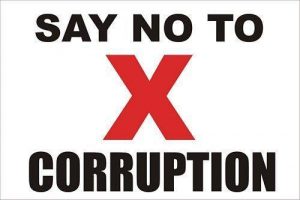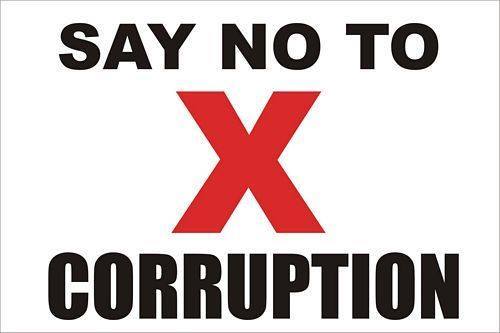 Alagi Yorro Jallow.
Alagi Yorro Jallow.Part 1
Mamudu: It is an incontestable fact that massive corruption permeates all levels of government in the Gambia and has become a threat to the nation’s economy and a danger to our democracy. As the scathing “US Country Reports on Human Rights Practices for 2019” on the Gambia estimates, the country lost about $ 304 million (D 1.06 billion) to what it calls “endemic corruption and entrenched inefficiency as a consequence ( former Yahya Jammeh) should be charged with theft, economic crimes and corruption.”
Additionally, some former officials are barred from holding public office for specified periods up to a lifetime. In 2017 the Barrow administration set up a commission of inquiry to probe the financial dealings of former president Jammeh. On March 29, the commission presented its final report to the president, and on September 13, it was released to the public. Its findings revealed a “disproportionate amount of resources was wasted, misappropriated and diverted by former president Jammeh. The government seized businesses, real property, and other assets from Jammeh and some of his associates based on commission report findings.
The Gambian law provides criminal penalties for corruption by government officials. The government generally does not implement the law of prosecuting corrupt officials; however, officials sometimes engaged in corrupt practices with impunity in prior years and recent times. There are widespread reports of high-level official corruption in both the predecessor and successor governments. The constitution requires income and asset disclosure statements from appointed and elected public officials; however, it does not stipulate non-compliance sanctions. The Ombudsman’s office is mandated to monitor and verify financial disclosures. Asset and liability declarations are not released to the public.
Mamudu: Corruption has become an endemic disease, malaise, and hydra-headed monster gorging every facet of the Gambian society and is indeed a crime against development. According to the 2020 Transparency International CPI index, the Gambia is ranked 102 out of 176 countries globally. Noteworthy, however, there has always been a salient yet silent form of corruption, insidiously contributing to the under-development of the Gambia, known as Quiet Corruption. The World Bank defines quiet corruption “as the failure of public servants to deliver goods and services paid for by governments.” This form of corruption does not make sensational headlines like bribery scandals do or other infamous corrupt practices. Still, it is just as corrosive and detrimental to the development of the country. It focuses on the inability and inefficiency of public officials in delivering goods and services to the majority of the populace, which has been made available and paid for by the government due to petty bribes, nepotism, greed, theft, cronyism, etc. For instance: when people pay bribes to access public services that should ordinarily have been freely available; when a child is denied proper education, due to the reason that the teacher is supposed to be teaching full time as stipulated by the government budget, is instead non-existent because salaries to pay the teacher have been fraudulently diverted to corrupt officials, and so on, are constituted as quiet corruption, inhibiting the Gambia’s long-term development; inevitably leading to distrust, lack of confidence and negative expectation of service delivery system of government services and public facilities.
Mamudu: Another prominent form of quiet corruption prevalent in the Gambia is ‘tenderpreneurs.’ These individuals enrich themselves through government tender contracts, primarily based on personal connections, cronyism, family ties, and corrupt relationships. They essentially consist of friends with personal contacts and links to those in power, nuclear and extended family members, non-re-elected politicians, etc. In most cases of tenderpreneur, outright bribery involves an elected or politically appointed official holding simultaneous business bidding for a particular contract. The result of this is often accompanied by overcharging and tawdry workmanship. Evident of this are the lacking in quality, half-finished and abandoned projects that amounted to a stack of abandoned public projects scattered across the country, worth millions of Dalasis, and have sat idle for various, often indiscernible reasons. Another group of tenderpreneurs is heads and top officials of government agencies/public institutions, who scheme and award government contracts to themselves, without due procurement processes such as open advertising and bidding; by setting up companies fronted by close relatives and associates.
Inevitably unaddressed, quiet corruption fosters poverty and exploitation due to the total reliance of the majority of the populace on the skeletal and non-existent government services and public systems as a result of monies and revenue embezzled and siphoned off by government officials. Unaddressed, it erodes the institutional capacity of government when procedures are disregarded, resources are siphoned off, and public offices are bought and sold. Unaddressed, it increases the cost of doing business, especially in the private sector, through the price of illicit payments, the management cost of negotiating with officials, and the risk of breached agreements of detection. Unaddressed, it lowers compliance and enforcement and contributes to the violation of laws or regulations. People ignore it and cannot be enforced efficiently since enforcement officials can easily be cajoled, coaxed, or bribed.
Indeed, quiet corruption has pervasively permeated government ministries, departments and agencies, and other public institutions, significantly reducing government services and infrastructure quality. Though laws in the Gambia provide criminal penalties for official corruption, the government has done little or nothing to implement these laws effectively. It is a well-known fact that public officials in the Gambia frequently engage in corrupt practices with impunity. According to the Bureau of Statistics, it has also become incredibly harmful to the nation’s poor, constituting about 10.1 percent of Gambians living below the poverty line. Similarly, the World Bank also states that more than 10.3 % of the entire population lives in poverty, particularly youth and women in rural areas. This colossal number/percentage of people is primarily dependent on government services and public systems to satisfy and provide for their basic needs and amenities.
Mamudu: Hence, tackling this scourge would require: a solid and committed leadership with genuine political will, policies, and institutions; the increased accountability and participation by citizens; the protection of whistle-blowers from harassment, intimidation, or persecution by the authorities, to encourage prospective whistle-blowers in exposing future corrupt practices of public officers; a free and vibrant press that is informative, authoritative and responsible, primarily via reports on government budgets and pending projects, enabling citizens to have adequate information and can further question leaders on the status of on-going and finished project, and the use of funds for the project; and lastly a genuinely independent judiciary, devoid of favoritism, bias, and partial judgments, persecuting culpable public officials accordingly, under the law.

